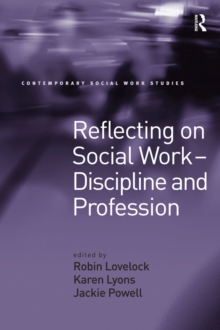
Decolonizing Social Work EPUB
Edited by Mel Gray, John Coates, Michael (University of Manitoba, Canada) Yellow Bird, Tiani Hetherington
Part of the Contemporary Social Work Studies series
EPUB
Description
Riding on the success of Indigenous Social Work Around the World, this book provides case studies to further scholarship on decolonization, a major analytical and activist paradigm among many of the world’s Indigenous Peoples, including educators, tribal leaders, activists, scholars, politicians, and citizens at the grassroots level.
Decolonization seeks to weaken the effects of colonialism and create opportunities to promote traditional practices in contemporary settings.
Establishing language and cultural programs; honouring land claims, teaching Indigenous history, science, and ways of knowing; self-esteem programs, celebrating ceremonies, restoring traditional parenting approaches, tribal rites of passage, traditional foods, and helping and healing using tribal approaches are central to decolonization. These insights are brought to the arena of international social work still dominated by western-based approaches.
Decolonization draws attention to the effects of globalization and the universalization of education, methods of practice, and international ’development’ that fail to embrace and recognize local knowledges and methods. In this volume, Indigenous and non-Indigenous social work scholars examine local cultures, beliefs, values, and practices as central to decolonization.
Supported by a growing interest in spirituality and ecological awareness in international social work, they interrogate trends, issues, and debates in Indigenous social work theory, practice methods, and education models including a section on Indigenous research approaches. The diversity of perspectives, decolonizing methodologies, and the shared struggle to provide effective professional social work interventions is reflected in the international nature of the subject matter and in the mix of contributors who write from their contexts in different countries and cultures, including Australia, Canada, Cuba, Japan, Jordan, Mexico, New Zealand, South Africa, and the USA.
Information
-
Download - Immediately Available
- Format:EPUB
- Pages:380 pages
- Publisher:Taylor & Francis Ltd
- Publication Date:13/05/2016
- Category:
- ISBN:9781317153726
Information
-
Download - Immediately Available
- Format:EPUB
- Pages:380 pages
- Publisher:Taylor & Francis Ltd
- Publication Date:13/05/2016
- Category:
- ISBN:9781317153726










